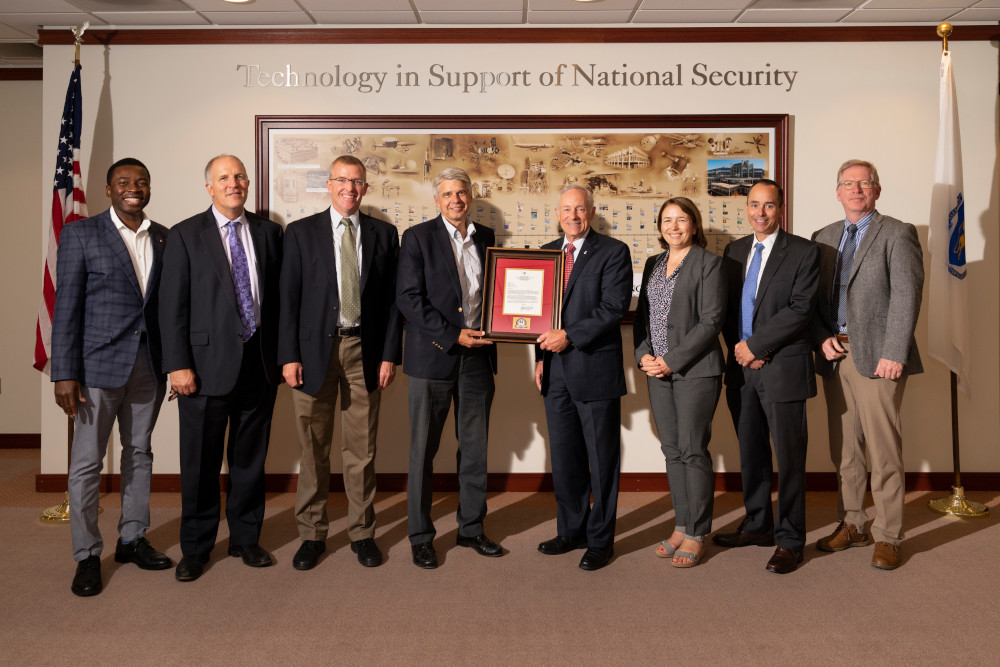Lincoln Laboratory is recognized for 60 years of service at Kwajalein Atoll

Lincoln Laboratory was recognized by Richard De Fatta, Deputy to the Commander, U.S. Army Space and Missile Defense Command, for 60 years of support of the Reagan Test Site (RTS) at Kwajalein Atoll in the Marshall Islands. Since the Laboratory's establishment, staff have supported and contributed to work conducted at the site by serving on assignments that typically last from two to five years.
"The Laboratory has been involved in technology development and field measurements at the Kwajalein Atoll since the test range’s beginning in the early 1960s," said Lincoln Laboratory Director Eric Evans. "This citation from the Army recognizes the outstanding work by many at the Laboratory over decades. Some of our most important defense technology transitions are deeply rooted in our research and development at Kwajalein."
The RTS is a world-class range and test facility for technologies involved in long-range missile testing, missile defense, and space domain awareness. The Laboratory continues to maintain a field site on Kwajalein and serve as the scientific advisor to the RTS through efforts at the site; at the Laboratory’s Huntsville, Alabama field site; and at the Laboratory's main campus in Lexington, Massachusetts.
"Thank you for 60 years of unwavering support to the Command and the Reagan Test Site," wrote De Fatta in a letter of recognition he presented to the Laboratory. "Our instruments on Kwajalein still operate in a pivotal and increasing role in the nation’s defense, which is truly a testament to [the Laboratory’s] dedication, brilliance, and technical modernization expertise."
To celebrate 60 years of service at Kwajalein, Laboratory employees who were previously stationed at the RTS gathered on 25 September at MIT’s Endicott House. Current and former government leaders associated with the site were also invited.
"Videos and posters of the Reagan Test Site history reminded us of the accomplishments made at Kwajalein," says Shawn Ohler, leader of the Laboratory's Advanced Sensor Systems and Test Beds Group, who was at Kwajalein from 2005 to 2007. "Those in attendance reconnected with old friends, who in some cases had not seen each other in years."
David Browning, RTS deputy director, attended the event with De Fatta. The next day, De Fatta and Browning visited the Laboratory for technical presentations about ongoing work at the RTS.
"The Laboratory is leading an effort to rearchitect the range’s world-class instrumentation radars, as well as develop and deliver many new capabilities," said William Donnelly, assistant head of the Laboratory's Air, Missile, and Maritime Defense Technology Division, who was at Kwajalein from 2000 to 2005. "The pace and complexity of the nation’s test and operational activities is driving a surge in demand for the Reagan Test Site, and the Laboratory is responding. De Fatta and Browning very much appreciated the time with our team and commented on the strength of our portfolio."